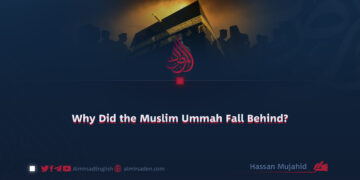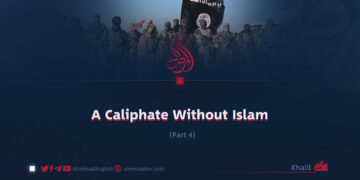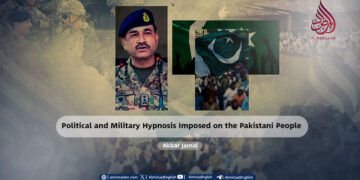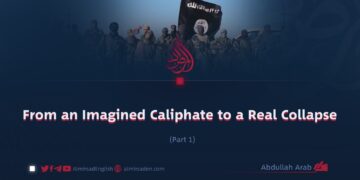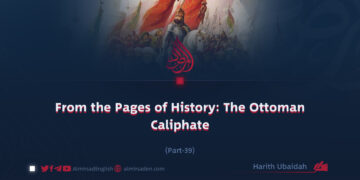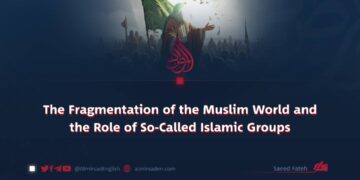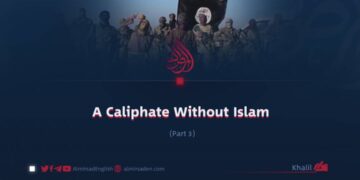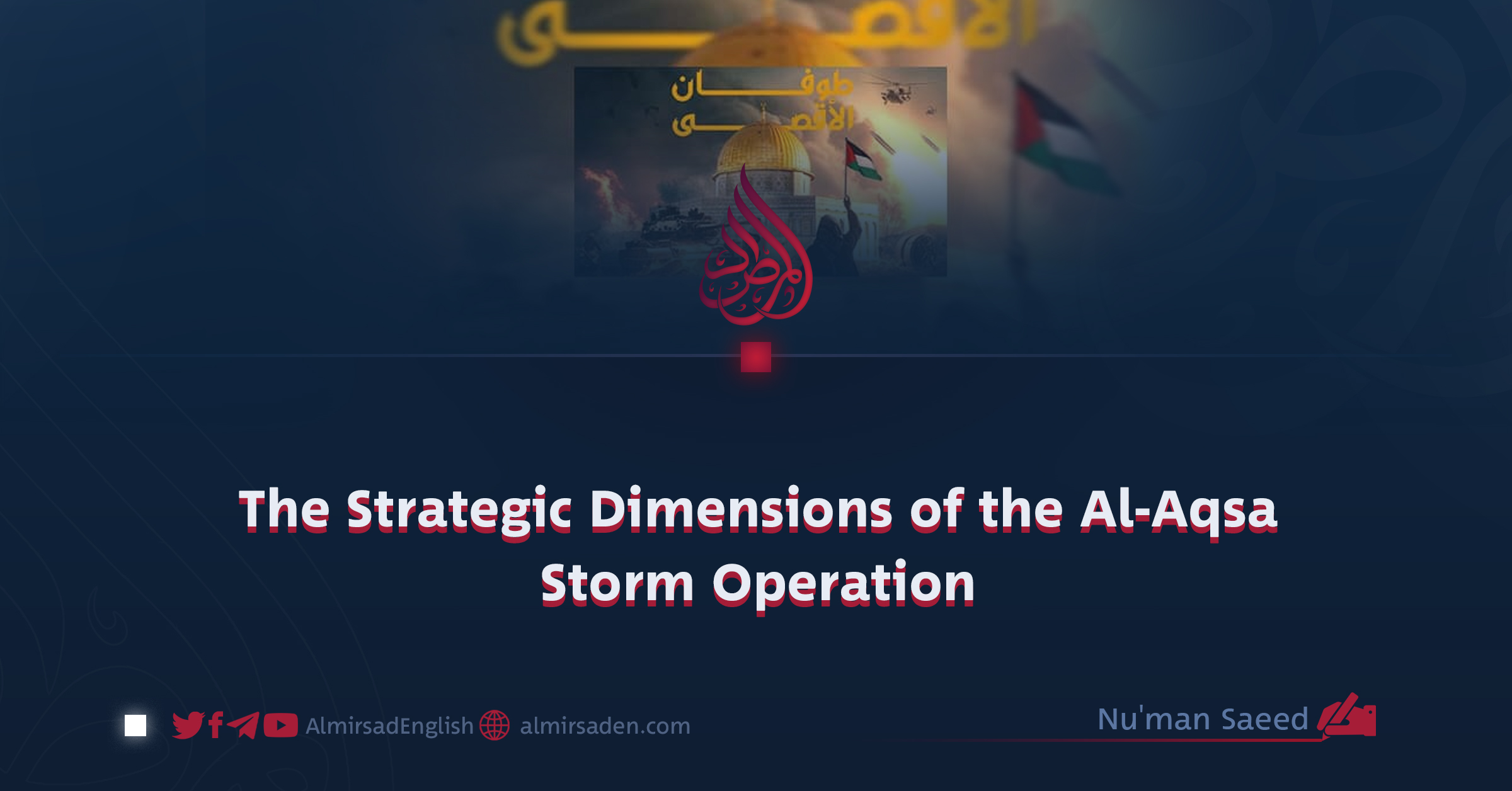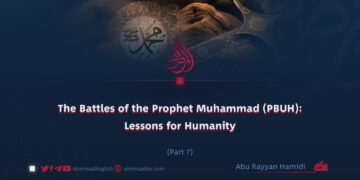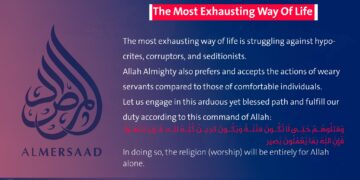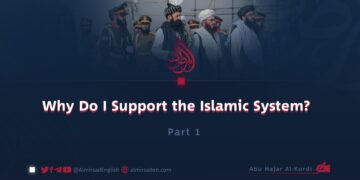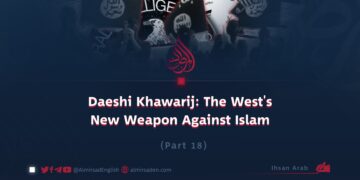By Nu’man Saeed
In September 2023, Israeli Prime Minister Benjamin Netanyahu stood before the 78th session of the United Nations General Assembly, exuding his usual arrogance as he unveiled a map of what he called the “New Middle East.” Yet, before his vision could even begin to take form, a powerful response emerged from Gaza that would reshape the region’s political and military landscape.
Soon after Netanyahu’s speech, the Commander-in-Chief of the Izz ad-Din al-Qassam Brigades, the martyr Muhammad al-Deif, announced the commencement of Operation Al-Aqsa Flood, a historic act of resistance that shattered Israel’s sense of invulnerability, upended the balance of power, and opened a new chapter in the struggle between Arab nations and the Zionist occupation. The operation laid the groundwork for a new strategic era spanning security, politics, and regional and global relations.
A Shockwave Through the Middle East
At dawn on October 7, 2023, the Middle East awoke to one of the most astonishing military surprises in modern history. From Gaza, the Izz ad-Din al-Qassam Brigades launched a massive, meticulously coordinated campaign known as “Al-Aqsa Storm.” The operation began with a sustained barrage of rockets and missiles that struck military installations and settlements deep within Israeli-occupied territory and beyond the Gaza perimeter.
Waves of ground assaults soon followed, carried out by fighters from al-Qassam, Saraya al-Quds, and other resistance factions. Hundreds of Mujahideen crossed the border, storming more than twenty military bases and settlements, inflicting heavy casualties on Israeli forces, destroying vehicles, and capturing hundreds of soldiers and intelligence operatives.
The operation’s success stunned observers not only for its scale and precision but for its profound intelligence penetration. Despite possessing some of the most sophisticated surveillance and espionage systems in the world, Israel was caught entirely off guard. Its security agencies failed to detect any credible warning, leading to one of the gravest intelligence failures in its history. With that, the long-vaunted myth of Israel’s “intelligence superiority” collapsed before the eyes of the world.
Security and Strategic Dimensions
The Al-Aqsa Flood was far from a spontaneous act of vengeance for Israel’s repeated crimes in Al-Aqsa and Gaza. It was a deliberate, deeply conceived strategic initiative rooted in Hamas’s doctrine of resistance. The operation sought to redefine the principles of warfare by shifting from a defensive posture to one of calculated offense and initiative.
From a security standpoint, the assault exposed the fragility of Israel’s heavily advertised defense systems, revealing their inability to withstand unconventional warfare. Militarily, it demonstrated that organized resistance movements, even without conventional armies, can alter the balance of deterrence through surprise, adaptability, and tactical ingenuity.
Politically, the operation dismantled the illusion of Israel’s military invincibility and disrupted the strategic calculations of Arab regimes that had pinned their hopes on normalization. On the psychological and media fronts, it restored confidence to the Islamic Ummah, breaking the wall of fear and submission that decades of Zionist propaganda had built.
Regional and Global Repercussions
The Al-Aqsa Flood sent tremors through the political architecture of the Arab world. It revealed the fragility of alliances forged on the basis of normalization with Israel and placed those governments in humiliating positions before their outraged publics.
It also revived the Palestinian cause, returning it to the forefront of Arab, Islamic, and global discourse after years of marginalization due to normalization pressures and domestic instability.
Internationally, the operation dealt a severe blow to Israel’s reputation as a reliable and militarily capable ally. The fact that a small, besieged enclave could infiltrate and destabilize one of the world’s most fortified states raised questions about Israel’s credibility as a strategic partner.
The operation forced global powers to re-evaluate their positions on the Arab–Zionist conflict. The United States, in particular, found itself cornered in a strategic deadlock, unable to prevent the escalation or to contain its far-reaching regional implications.
Cultural and Spiritual Dimensions
Beyond its military and political outcomes, the Al-Aqsa Flood carried a profound cultural and spiritual significance for the Islamic Ummah. It rekindled the spirit of jihad and resistance in Muslim hearts, reaffirming the belief that faith and determination can triumph over occupation and oppression, regardless of the enemy’s power.
The operation underscored the centrality of the faithful individual, the believer who stands firm in the face of adversity. It showed that cultivating steadfast and conscious human beings is more essential than accumulating weapons or technology. True success, it reminded the world, stems not from material power but from conviction and unwavering resolve.
This event also compelled thinkers and strategists alike to revisit the very notions of strength, victory, and defense. It proved that genuine triumph begins in the heart and the will before it manifests on the battlefield. In that sense, the Al-Aqsa Flood became not merely an operation but a school, a living lesson in faith, perseverance, and strategic endurance.
Two years on, the Al-Aqsa Flood stands as a defining strategic and cultural moment in contemporary history. Its impact transcended the battlefield, reshaping the political, diplomatic, psychological, and spiritual contours of the conflict.
The operation revealed the extraordinary endurance and discipline of its participants and reaffirmed that faith, awareness, and determination outweigh the might of machines and military technology. It also forced the Zionist regime and global powers to re-examine their assumptions and strategies toward the region.
Ultimately, the Al-Aqsa Flood remains a lasting testament to the power of human will. It offers enduring lessons in strategic planning, warfare management, and the purposeful cultivation of resilient believers. As such, it stands as a complete institution encompassing military, security, political, media, psychological, and spiritual dimensions whose influence will continue to shape the course of resistance for generations to come.






